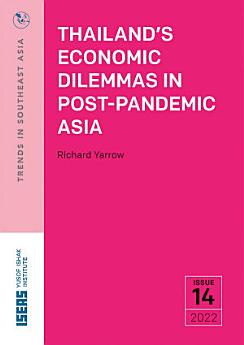Thailand’s Economic Dilemmas in Post-Pandemic Asia
About this ebook
Thailand’s economy has steadily recovered following the peak of the pandemic in 2020, with greater optimism coming from the growing trade in goods and growing investments from China and Japan. The tourism sector has also steadily regained strength since the worst points of the pandemic.
Despite these recent positive turns, Thailand still faces daunting long-term economic and societal challenges, many of which were exacerbated by the COVID-19 pandemic. Household finances appear increasingly stressed and debt levels have risen sharply across the economy. It is unlikely that Thailand will be able to return its tourism industry to 2019 conditions for the next several years.
Meanwhile, deteriorating demographics and education enrolments pose serious threats to long-term macroeconomic prospects. Thailand’s population of young people is falling, but the country appears to lack momentum in elevating enrolment rates and improving the quality in secondary and tertiary education.
The agriculture sector remains large, with some crop diversification but with limited gains in productivity, in the face of rising competition—for instance, from India and Vietnam.
Policymakers may aim to revitalize Thailand’s economic prospects with policies aimed, for instance, at enhancing agricultural productivity, combining and internationalizing higher education institutions, easing restrictions on foreign investments, and promoting greater competition by smaller enterprises against large conglomerates, in addition to efforts to improve on transparency and stability, and reduce corruption, within Thailand’s political system.
About the author
Richard Yarrow is Fellow in the Mossavar-Rahmani Center for Business and Government, Harvard Kennedy School, and Visiting Research Fellow in the East Asian Institute, National University of Singapore.








